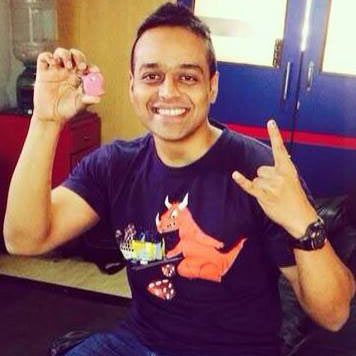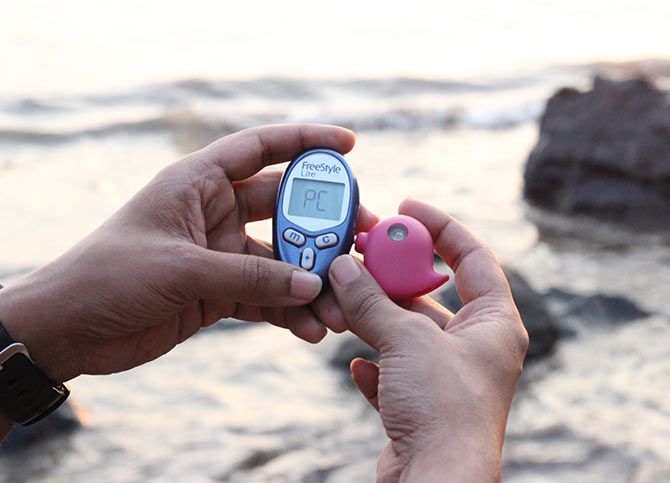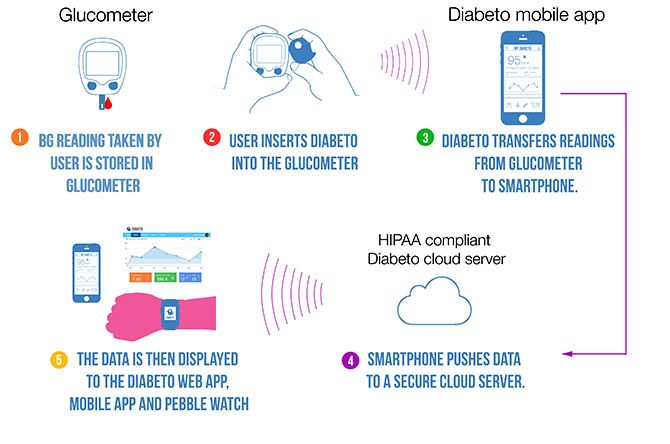World over 347 million people are diagnosed with diabetes.
Once this disease gets you, it takes over your life, gradually, but eventually.
Mumbai-based serial entrepreneur Shreekant Pawar, who is all set to launch a device to help fight diabetes tells us more about the lessons he’s learned in the journey.
 According to the World Health Organisation, diabetes is one of the largest causes of deaths and by 2030, it is predicted to be the seventh largest cause of deaths in the world.
According to the World Health Organisation, diabetes is one of the largest causes of deaths and by 2030, it is predicted to be the seventh largest cause of deaths in the world.
As per a 2014 data released by the Indian Council of Medical Research, approximately 65 million people in India are diabetic.
For any cure of this disease, it is crucial to understand and track the glucose readings.
In January 2012, Mumbai-based Shreekant Pawar came up with an innovative idea of facilitating this -- a bird-shaped handheld device named ‘Diabeto’ that will track and record glucose level readings into a mobile device.
Before Diabeto, Pawar who is a BPharm professional from Mumbai University has worked as operations assistant with YouSendIt, a digital data sharing platform and also co-founded Toonio, an online directory for animation professionals.
After a lot of challenges -- emotional and commercial, Diabeto is all set to launch in September 2015.
We talk to Shreekant Pawar, 32, the brain behind Diabeto, his struggles and the lessons he’s learned as a first generation entrepreneur in the last few years.
You’ve founded and worked on more than one start-up. What inspired you to take up the cause of diabetes this time?
Both my parents are diabetic. World over 347 million people are diagnosed with diabetes. I have realised that once this disease gets you, it takes over your life, gradually, but eventually.
There may be different ways to fight it, but primarily you’ll need to keep track of your glucose levels to find out whether you’re on the right track.
That’s where Diabeto comes in.
Please share some of the interesting findings about diabetes that you realised during the process of starting up?
One of the greatest myths people have is that diabetes is caused because of consuming too much sugar.
While that may be too generalistic, one must realise that diabetes is caused due to sugar imbalance in the blood.
There are different types of diabetes.
It could be caused due to hereditary reasons, environmental factors, hormonal imbalance during pregnancy, insulin resistance among others.

Could you please tell us more about what Diabeto exactly does?
Diabeto is a hardware device, powered by Bluetooth which helps transmit blood glucose readings from a glucometer into a mobile device.
Users can access these readings using a smartphone application which would push the readings on a secure cloud server. These readings can then be accessed by a diabetologist or nurse for further intervention.
Onto the application, You can track the mood, medication (Insulin intake), physical activity and even carbohydrate intake.
The application will also let you select the time frames, analyse the sugar shifts and can even email the graph to your diabetologist for his opinion.

Who is your target audience and how do you plan to reach out to them?
By the end of this year, we aim to launch Diabeto in the US.
We’d be looking at people with Type 1, Type 2 Diabetics and pregnant women with gestational diabetes.
In the initial phase, we aim to approach health centres, hospitals and chemist shops.
The product will be made available on pre-order basis and we’ve got about a thousand plus requests already.
Why did you chose to launch your product in the US and not in India?
A lot of people have asked me this question.
In fact when the Chile government funded our product they wanted us to stay and develop the product in Chile.
While we loved the idea, we had also explored the market in the last few years.
We realised that the US would be the best place to launch the product.
The US Food and Drug Administration is one of the greatest medical bodies that approves and grants medical licenses.
Once we had their approval, it would be easier to scale and tap on to other countries, including India.
What were the challenges you faced when you started up?
The greatest problem we faced was while meeting investors.
They don’t want to invest in anything new and always have their own ideas. They want to invest in tangible services and products.
For example, one of the investors wanted us to start an e-commerce website.
Another one suggested that we come up with a wearable device that can track everything -- from blood pressure to sugar levels.
Although it seemed like a revolutionary idea, that was not what we at Diabeto intended to provide and we did not want to digress.
A couple of failed meetings later, we contemplated raising funds through Indiegogo.com, an online campaign.
We were required to raise $10,000 to be eligible for FDA approval in the U.S.
In January 2015, we managed to raise more than $14,000 in the first 10 days so our idea was successful.
The greatest challenge is to get the paperwork done and required licenses on time.
As a first generation entrepreneur, what were the mistakes you made and how did you overcome them?
My greatest mistake with Diabeto was that we did not map the market well.
We were so engrossed in building our product that we did not look at its commercial value or position.
It took us two years to rectify our mistakes and fall back on track. We had to rebuild our prototype to make it more appealing and commercially viable.
We lost a lot of time in the process.
What are your future plans?
We intend to complete 100 installations in the next two years.
After the US, we want to take our product to Europe and eventually India.
Your advice to aspiring entrepreneurs
It’s okay to feel proud about the work you do, but don’t be egoistic enough to not be able to see your own downfall.
Be open to criticism. There is always scope for improvement.
Rectify your mistakes before it is late and learn from them.
Take new risks. Don’t be afraid to fall and fail and be open to learn.











 © 2025
© 2025